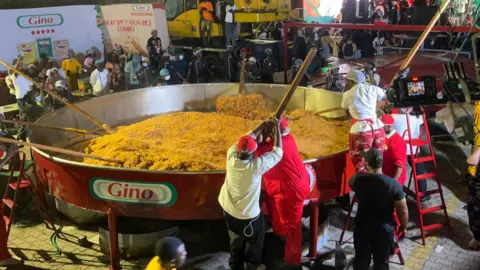The United States government has pledged $32.5 million in food aid to Nigeria in response to the country’s worsening hunger crisis. The announcement, made by the U.S. Agency for International Development (USAID), underscores international concern about the rising levels of food insecurity in Africa’s most populous nation.
Nigeria is currently facing one of its most severe hunger emergencies in recent history. According to the United Nations, more than 26 million Nigerians could face acute food shortages in 2025 due to conflict, inflation, and the effects of climate change. Northern Nigeria has been hit hardest, where years of armed conflict involving Boko Haram insurgents, bandit gangs, and other violent groups have displaced millions of people from their farmlands.
The U.S. aid package will provide life-saving assistance in the form of food rations, nutritional support for malnourished children, and livelihood programs for struggling families. "The United States stands with the people of Nigeria in their time of need," said a USAID spokesperson. "This funding will help ensure that vulnerable communities, especially women and children, do not go hungry."
The aid will be distributed through international humanitarian partners such as the World Food Programme (WFP) and local NGOs already operating in high-risk regions. These organizations will supply food baskets containing grains, beans, vegetable oil, and fortified foods to households in need. Specialized nutritional supplements will also be given to children under five, who are most at risk of severe malnutrition.
The announcement has been met with cautious optimism in Nigeria. Many Nigerians welcome the support but also stress the need for long-term solutions to hunger. "We are grateful for the assistance," said Musa Ibrahim, a displaced farmer in Borno State. "But food aid is only temporary. What we really need is peace and access to our farmland so we can feed ourselves again."
Experts agree that while foreign aid is critical in the short term, Nigeria must tackle the root causes of hunger. Conflict has prevented farmers from planting and harvesting, while floods and droughts linked to climate change have wiped out crops. Inflation has further worsened the crisis, with food prices rising sharply, making staples like rice, maize, and beans unaffordable for many families.
The Nigerian government has acknowledged the crisis and launched initiatives such as subsidized fertilizers, irrigation projects, and grain reserves to stabilize food supplies. However, critics argue that corruption, weak distribution systems, and insecurity have undermined these efforts.
International partners have urged Nigeria to strengthen its agricultural sector, invest in climate adaptation, and improve governance in food distribution. Some analysts believe that with its fertile land and youthful population, Nigeria has the potential not only to feed itself but also to become a major food exporter if its challenges are properly addressed.
For now, millions of Nigerians will rely on the newly announced U.S. assistance. While it may not solve the hunger crisis, it offers hope to families struggling to survive. The real test lies in whether Nigeria can transition from emergency relief to long-term food security.



